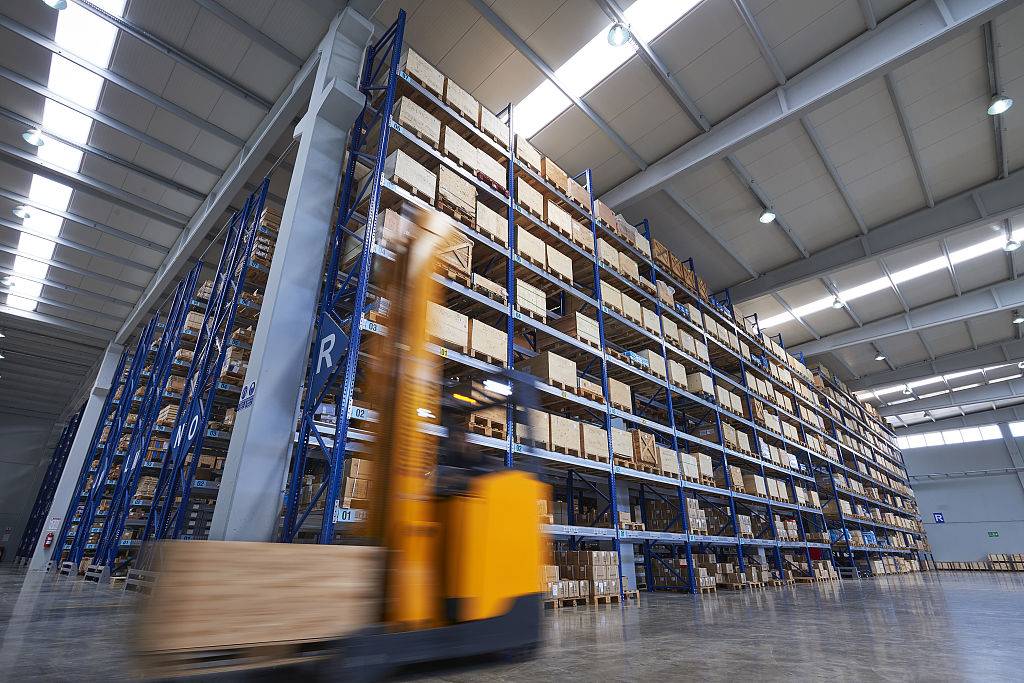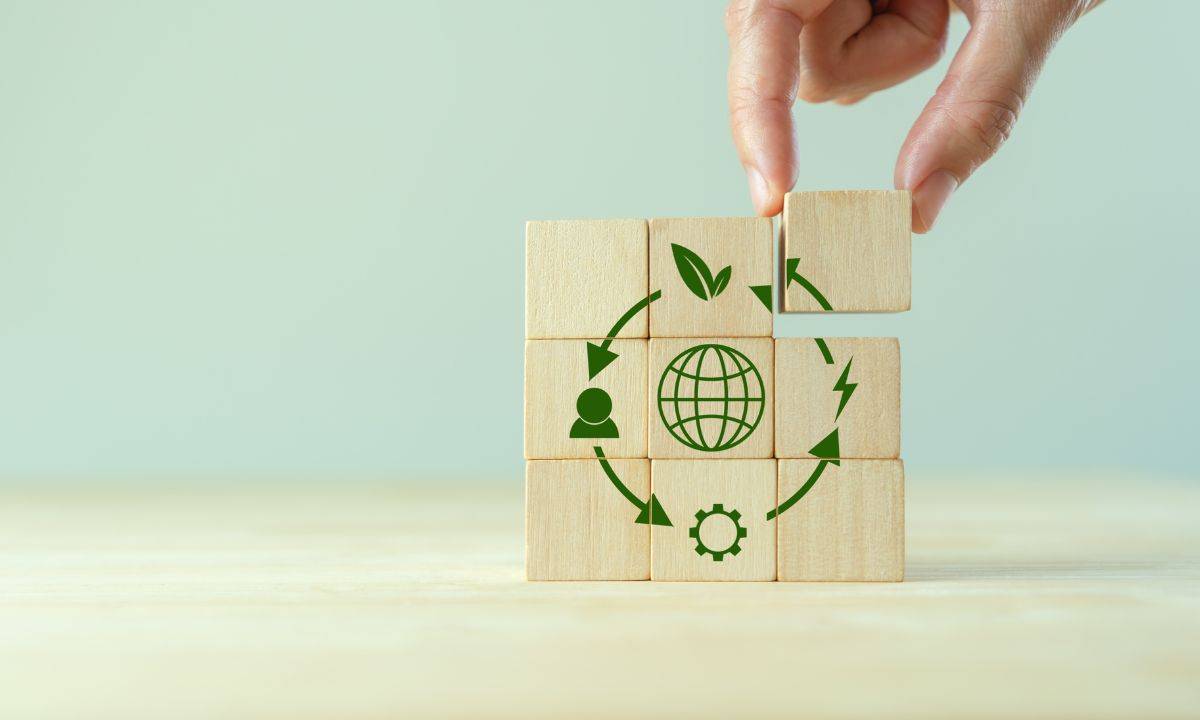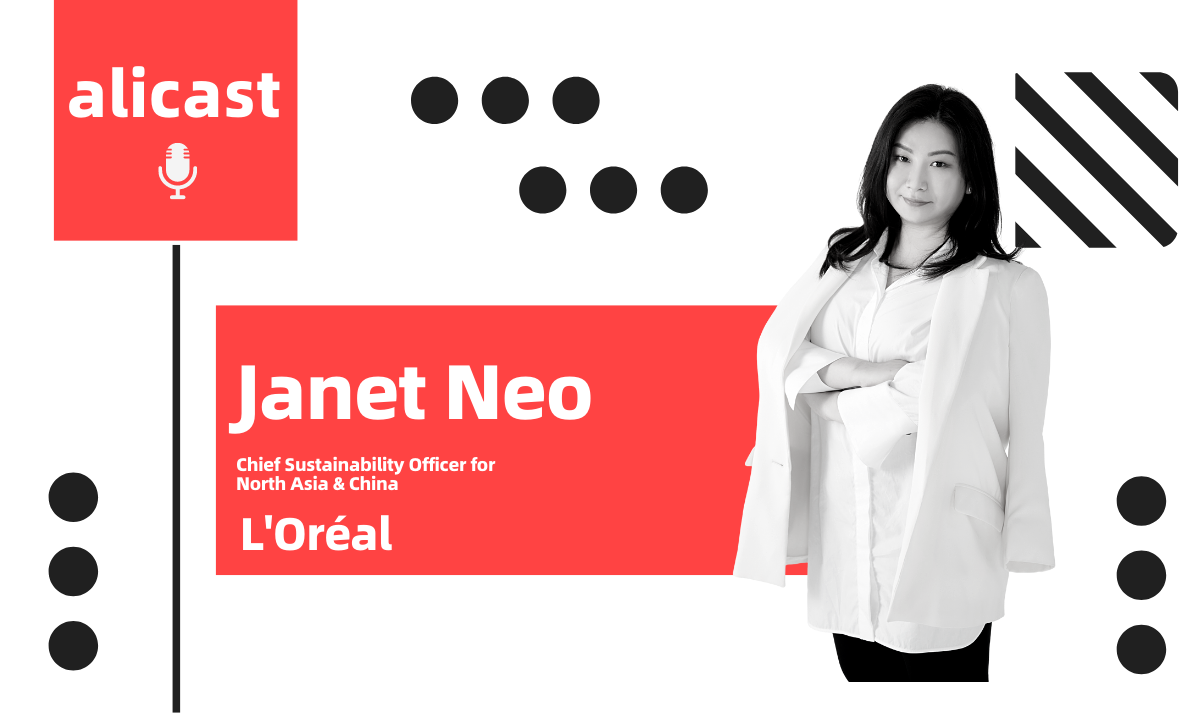
Alibaba Group and the world’s largest cosmetics company L’Oréal have joined forces in a three-year partnership to promote a circular economy within China’s beauty industry.
This collaboration was announced in Beijing early this month during French President Emmanuel Macron’s visit to the country.
In this episode of Alicast, join Alizila’s Managing Editor, Alison Tudor-Ackroyd, as she speaks with Janet Neo, L’Oréal’s Chief Sustainability Officer for North Asia & China.
With Janet’s prior experience as the Head of Corporate Sustainability & Government Affairs at Southeast Asian e-commerce platform Lazada and her current role as a Board Director of Singapore’s Temasek Foundation Ecosperity, Janet brings valuable expertise to the discussion.
Tune in to this conversation to learn about the importance of sustainability in the beauty industry and the challenges Alibaba and L’Oréal are tackling together.
Below is a transcript of this Alicast, edited for clarity and brevity
Alison Tudor-Ackroyd: Janet, thank you so much for joining us on Alicast.
Janet Neo: Thank you, Alison, for having me. It’s great to be on the show.
Alison Tudor-Ackroyd: Janet, can you set the scene for us? Why is it important that the beauty industry should become more environmentally friendly in China?
Janet Neo: For sure. China has an $87 billion beauty and personal care industry, and we are seeing that the beauty industry has deep penetration. Most of the category’s penetration across skincare, makeup, hair, and beauty is over 70% or even higher, up to 90% of this kind of access to consumers and especially to young people and younger consumers as well.
So, as a category itself, it is already having a huge impact on sustainability among our consumers. We know that for beauty and consumer products, one of the biggest environmental challenges we face is plastic pollution.
Although we see in China that there are already lots of recycling promotions at the government and local community level, consumers want to participate. I think there’s still much opportunity there for innovation and technology in recycling to be developed to scale this impact and make it easy for consumers.
And at the same time, what happens to all these plastics and empty bottles that are disposed of? If they go to the landfill, we get land pollution. If the products are made from biodegradable plastics, they break down into microplastics when they decompose, which could leak into the oceans and rivers. And then there is water pollution.
Our ecosystem is all interconnected. This issue right here is very urgent. I want to emphasize the urgency of it.
Alison Tudor-Ackroyd: Yes, the scale of the beauty industry in China continues to surprise me.
The stated goal of the partnership between Alibaba and L’Oréal is to create this circular economy within the beauty industry. Could you tell us what that circular economy will look like?
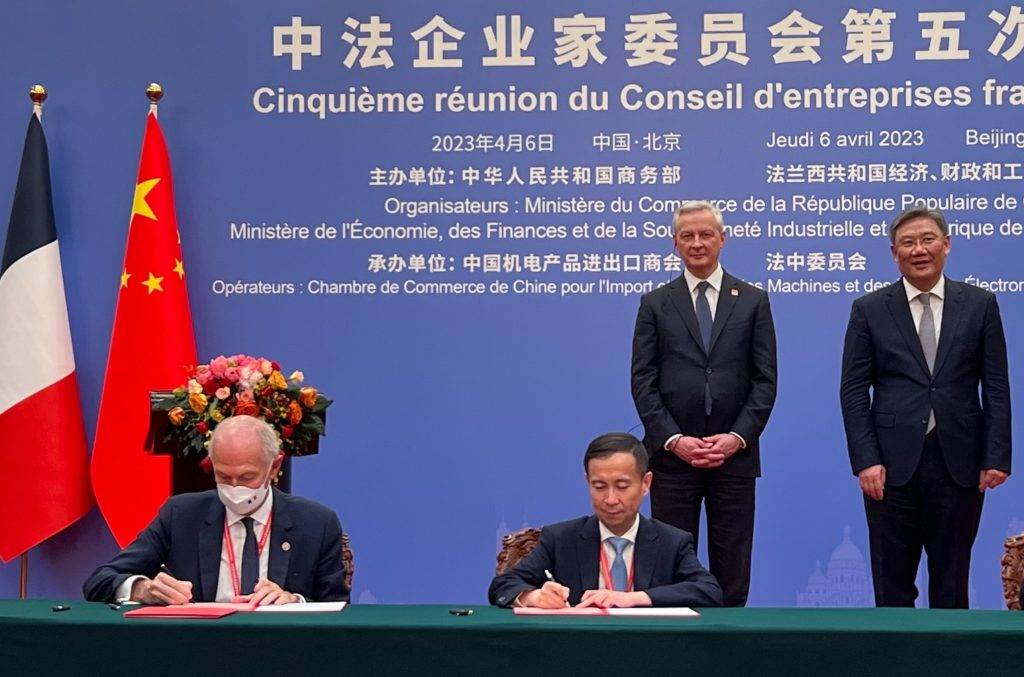
Janet Neo: When we look at sustainability, often we look at the production line. The moment it leaves the factory, it goes on a shelf. It may be the end of the story, but when we are operating in a digital economy, we start to think about the online and digital infrastructure of the footprint. From how the products are being advertised to the fulfillment.
There’s also the fulfillment chain that’s within the e-commerce operations as well.
In that regard, I think both Alibaba Group and L’Oréal China have the same common goal. If we were to focus on our biggest impact, it would be the digital economy.
In these three years, we realized that we had done a lot of different innovative pilots, but going forward, if we’re thinking about 2030, how can we not just go at a fast speed?
We need to go hyper-speed; we need to do moonshots.
We just launched our product information labeling system in China, the first in the beauty market. We bring it together with Alibaba, which is our platform.
This is the best way we can reach the maximum number of consumers online every day to interact and learn about the information that can be provided with a beauty product—for example, the carbon footprint.
Through the platforms, what kind of technology features could be added to the consumer experience from search to purchase and making it repeatable so that it becomes the day-to-day habit of consumers?
Alison Tudor-Ackroyd: I’m excited to watch out for those moonshots!
Janet, how are you measuring the success of this partnership?
Sustainability is imperative to long-term business growth in China
Janet Neo: What doesn’t get measured doesn’t get accounted for, right? Sustainability is about transparency, traceability, and measurements.
We look at a few yardsticks. So first is shared products and consumers. In the portfolio of offerings, we can calculate the number of SKUs (stock-keeping units) that can meet the eco-beauty or low-carbon-friendly criteria. That’s number one.
That links to methodology. If we don’t have availability, there’s no accessibility.
And then the second one is the number of green shoppers who would pay not just to search, but go through the stage where they click purchase, these refillable models or low carbon or sustainable packaging products that we offer.
It’s also a measure for us that guides us to know whether the way we are implementing consumer engagement campaigns is resonating. And it gives us a channel to really connect with the shoppers.
And then the third one, it’s really one of the things I think is a very tangible success that we already see since 2018 was our first sustainability collaboration with Alibaba Group, which is the green parcels.
The number of parcels and the transactions are all accountable, and they’re also all in the system. So that’s the third metric.
And finally, I want to go back to the notion that I shared earlier about the green GMV (gross merchandise value). So green GMV, we view as the sales or the revenue generated by sustainable or low-carbon products versus normal sales. In a way, we can call it the growth rate.
We believe that this green GMV will outperform normal sales growth in the future.
Alison Tudor-Ackroyd: Could you explain how this work is sustainable in the long run for L’Oréal in strictly financial and business terms?
Janet Neo: Sure. Sustainability is imperative to long-term business growth in China. The balance between the performance of financials, environment, and social—unless we get the right mix, it’s not sustainable.
Like any innovations and new offerings, there have to be investments that go into the seeding and nurturing stage where solution technology is being developed. Also, giving consumers refillable models as part of the sustainable products portfolio.
One example that we see in the Chinese market as a clear success is Lancôme Absolute cream, which has already shown a strong increase in 2022 alone. The refill model represents, as of 2022, a remarkable 39% of total Absolute [sales]. We believe that sustainable product offering is the norm for the future.
Alison Tudor-Ackroyd: Janet, can you walk us back through the history of this partnership? Are we working well together?
Janet Neo: Our relationship doesn’t just start with this three-year partnership that we have announced. Before 2018, with the digitalisation development in China, L’Oréal and Alibaba had been close friends since 2010.
We set up our first online store on Tmall. If we were to say what was the first sustainability environmental-related partnership that we have done with Alibaba, it really started in 2018, when L’Oréal in China was advocating and also thinking, discussing—is it possible, what can we do to reduce all the volume and the plastics that are generated from parcel packaging?
After two years of experimentation, we formally announced this green parcel partnership in 2020.
In that year, we knew that after we got the mechanics right and then the models and the materials right about green parcels, we activated on the platform actually the first consumer engagement on the sustainability festival.
It was very much concentrated on educating Chinese consumers about the concept of green parcels. And at the time, it was very interesting.
So our team here, with our networks, with the universities and our partners, launched a very big campaign in the schools where we engaged the students to come to participate in a project called “Good Planet See U”.
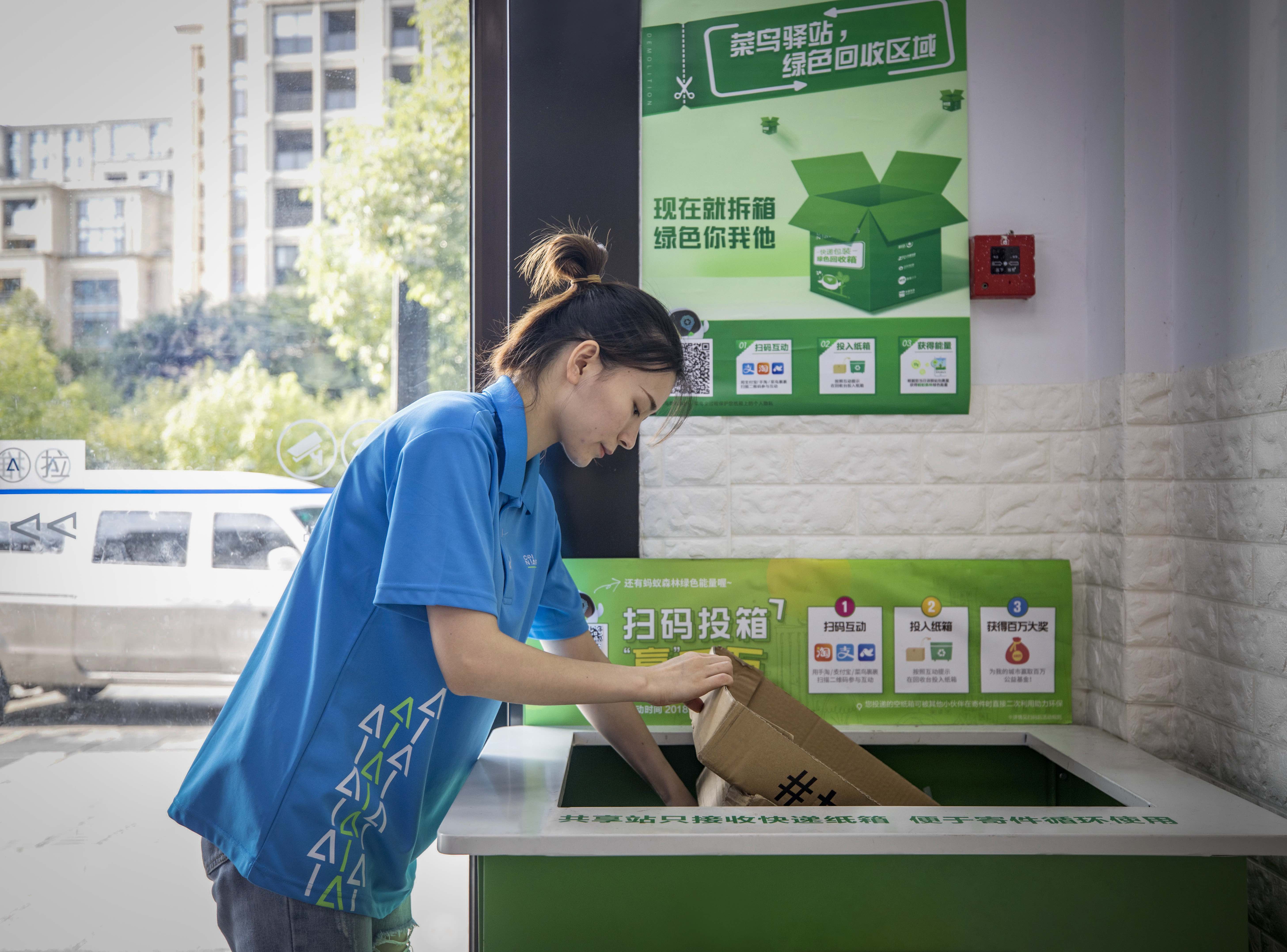
They could write messages about environmental protection and messages to the consumers who will receive a green parcel. After this contest, the boxes were all at Cainiao. That month, consumers who bought any of our products online would receive these green parcels with personalized and sincere messages from the students and participants who want to take action for the planet. That was the official kick-off of the partnership.
Alison Tudor-Ackroyd: We have to think about what the consumers in China want when we think about the success of these partnerships. From your research, do they care about sustainability, or are they just really price-conscious?
Janet Neo: They care about sustainability for sure because all these years, since 2018, one of the metrics that we could clearly track in the first place was the number of green parcels that were delivered and received by the consumers.
In 2018, when we first launched, we didn’t have a baseline. After a year, we actually shipped 20 million green parcels, and then the number increased year-on-year.
The scale is pretty amazing. I mean, it’s really hyper-growth. By the end of 2022, our total number of green parcels shipped out in the last few years was 149 million.
Alison Tudor-Ackroyd: Wow.
Janet Neo: So this is already a very clear sign that it is working: customers want it.
And then the second one was last year. We innovated in going beyond the green parcel to develop reverse logistics flow. And then, we introduced our brand Maybelline and worked together with Cainiao to launch this circular packaging in Hangzhou.
This is the first time this circular parcel is being used for consumers. What is a circular parcel?
It’s a parcel box that could be returnable and used up to 40 times, so we save 39 times on packaging materials. We tried that and found that 75% of the consumers opt for this option. Now that we can track this, we are in the next few versions of this circular parcel pilot. With either version two or three, we will be able to map out the baseline of this circular map and then the returning habits as well.
Alison Tudor-Ackroyd: A final wrap-up question, drawing on your experiences at Temasek, United Nations, Heineken, and Lazada. What was the key takeaway that you would say on how e-commerce can help make retail greener?
Janet Neo: Such an interesting question, and it is also a point of reflection for me. When I joined Lazada, it was at the time Covid broke out. But what happened in Southeast Asia? Suddenly we saw the shift that everyone was talking about, that consumption was going digital; it happened overnight.
All of a sudden, we’re seeing that, oh, how do we help sellers to get online? How do we help them survive this crisis so that they can continue the sales simultaneously?
The stunning volume of packaging that was generated from this online shift was just beyond shocking. So that was the time when I joined Lazada because I felt that someone in the market had to take the lead, and who else was better than the largest unicorn at the time? Market leader Lazada did it.
There are a lot of investments pouring into the businesses to prove that consumer demands are there. The GMV targets are aggressive, with all the discounts and happy customers, and there’s a 14-day free return. Working in sustainability for so long, it was really challenging for me to think about how e-commerce can be part of the solution.
If we were just to say – “buy less, buy less is good,” but if we look at the overall economy at a time when there were no online channels, how many people would not be able to survive and not even have a livelihood?
This was a lifeline for many people, especially in developing countries like Malaysia, Thailand, and the Philippines. It was tangible.
So it’s not so straightforward and clear-cut. I learned that one of the biggest things about e-commerce is that its most significant sustainability impact and playing field lies in its fulfillment infrastructure and technology solutions to make shopping easy for consumers.
But what is the lever? Because when you look at e-commerce, they are between brands and consumers. They own nothing upstream and nothing downstream, either. So what do they impact?
In terms of what e-commerce can do to be greener or more sustainable, they need the brands and their customers. The brands need to achieve the impact with scale to activate this sustainability transformation. The size and reach of consumers that the portfolio of their value brands can reach is also crucial.
That was when I met L’Oréal, who already had decades of experience in their own sustainability journey. From their supply chain to their marketing to their e-commerce, L’Oréal understood what was needed as a market leader to pilot new sustainability solutions.
Two things happened: we were able to put together both internal teams backed by L’Oréal as the first customer.
In less than nine months, we rolled out the first sustainable e-commerce packaging solution in not just one or two but four out of six markets – Vietnam, Singapore, Thailand, and Malaysia. With this first business case, we were able not just to measure the parcels but also the amount of plastic removed or reduced from this action.
When we talk to consumers and different stakeholders about e-commerce going green, the most commonly raised solution is, “Hey, give us an eco-label. Help us to know which are the green products. Help us – give us a label.”
However, we know that the key to a trusted eco-label lies in the criteria design, selection, and selection by subject matter experts in sustainability who endorse, audit, and validate it as trustable. It’s not the strength of the e-commerce platforms, like Alibaba or Lazada, which have so many categories of products. They couldn’t have a standard that could apply to all product categories.
Alison Tudor-Ackroyd: Janet, I want to say thank you so much for your insights. I’ve really enjoyed talking with you.
Janet Neo: Thank you, Alison, for having me. It’s my pleasure.
Alison Tudor-Ackroyd: And thank you, everyone, for joining Alicast. For more tips from entrepreneurs and brands on successfully navigating the world’s second-largest economy, subscribe to the Alicast series on Apple Podcasts or Spotify or wherever you choose to listen.
Listen and follow Alicast
“Alicast” is a production of Alizila, the corporate newsroom of Alibaba. It’s produced by Yashan Zhao and hosted by Alison Tudor-Ackroyd. If you’re in a podcast app already, please follow “Alicast.” If you’re listening on Alizila’s website and want each new episode of “Alicast” delivered to you as they’re published, download any podcast app, then search for “Alicast by Alizila” to follow the show. Thank you for listening, and goodbye for now.



